In Alcoholics Anonymous, NA, and other 12-step recovery programs, “character defects” are defined as characteristics within a person that may lend themselves to addiction. They’re similar to the seven deadly sins, but they’re far from a one-to-one match.
The idea behind character defects is the importance of recognizing what patterns in life lead to causing wrong to other people. If you can identify the character defect responsible, you can work to avoid it and the actions surrounding it for the benefit of others (and yourself). It’s another step toward self-knowledge, and eventual self-mastery that allows you to surrender to a higher power and start your journey toward recovery.
Examples of Character Defects in Addiction
There are many possible character defects that you can name or interrogate as part of your sobriety journey. Here are a few of them, with some examples of how they may manifest for an individual:
- Denial/Phoniness/False Pride: Downplaying your addiction, or not being willing to listen to other people’s stories of how it affected them.
- Self-pity: Indulging in your substance of choice because you don’t feel capable of sobriety (or that you deserve the bad effects of your addiction).
- Negative Thinking: Not beginning a 12-step program because “there’s no way that stuff really works.”
- Defensiveness: Reacting with hostility when someone points out your substance abuse, sometimes to the point of lying about how much you’ve had.
- Jealousy: Being preoccupied with what a non-addict has, without interrogating how you yourself could potentially obtain it.
- Sloth: Avoiding difficult tasks (or those that require concentration) and getting high instead.
- Selfishness: Prioritizing your use of the substance (or the high itself) over being present when others need you.
- Vanity: Changing drug methods or substances because of how the use affects your appearance, as opposed to seeking sobriety.
- Procrastination: Delaying journal prompts or other work recommended by your sponsor because you know it will touch upon sensitive topics for you.
- Self-Neglect: Not caring for your health or financial well-being, even as you see your decision affecting other people.
- Criticizing/Gossip/Loose Talk: Becoming overly analytical of other people’s sobriety; deferring talk about your own addiction by sharing news about others’ imperfections.
Which AA Steps Address Character Defects?

The two big steps that address character defects are Step 4 (Make a Searching and Fearless Moral Inventory of Yourself) and Step 6 (Allow God to Remove All Your Defects of Character).
How to Complete Step 4
Often considered one of the most difficult steps, it’s key to do some deep reflection and be honest with ourselves about which character defects led to addiction (and the subsequent destruction to others). Reflecting on these character defects is called taking a moral inventory. This can be completed with a sponsor.
It’s important to look past the circumstances and the actions of others and double down on your actions. Blaming other people for the times you expressed a character defect isn’t going to help with your recovery. Don’t blame your past trauma or even your substance itself. It all comes down to you, because you need to be able to help yourself maintain sobriety.
How to Complete Step 6
This is a step of surrender, not unlike Step One, wherein the individual person asks their higher power to remove all of their defects of character.
At the core, character defects are warped extensions of natural urges and desires. It’s not gluttonous to enjoy tasty food. But solely sitting around and eating tasty food while intoxicated can quickly lead to problems. A character defect causes harm specifically because it’s something you don’t want to give up. In this case, you’re not asking your higher power to take away your hunger or love for fried chicken. You’re surrendering to the fact that you’ve used the natural hunger urge in a harmful and excessive way.
What does “have God remove all my defects of character” mean to me?
If you are religious, step 6 can largely take the shape of a conventional prayer. If you personally identify as an atheist, you can choose to view this step as a commitment to recognize your character defects and not allow them to define you anymore.
How do I know I’m ready for my character defects to be removed?
This step focuses mostly on effort, not being perfectly pure or making only good decisions. That’s impossible for anyone to do. “Readiness” refers to if you feel prepared to make a true effort to work to be your best self at all times, without denying your base instincts or needs.
Not being ready to release your character defects can take a few forms. Maybe the idea of giving up perfectionism is scary because you believe success in life depends on it. Patterns of partner codependency may be hard to give up because that was the model of love you saw growing up. If you have shame, fear, or anger when someone names a defect as one of yours, you may not be ready to give it up. You may require more time, a deeper inventory, or focused talks with your sponsor about the subject.
Start Your 12 Step Recovery Program in Colorado
Here at Spero Recovery, we’re committed to supporting men in their journey to recovery via the 12-Step recovery program. People from all walks of life and belief systems are welcome to seek recovery, and residential recovery options are available for those needing intensive support. Individuals suffering from mental illness can find relief in our dual diagnosis programs. Wherever you need support, Spero Recovery can help. Contact us today to learn more.














